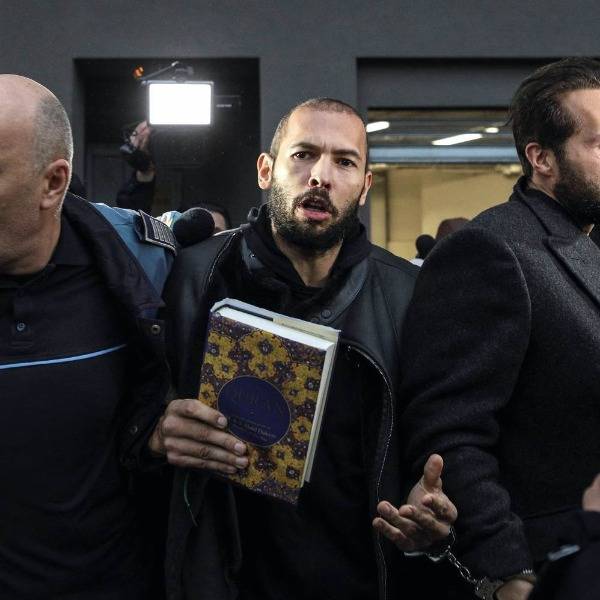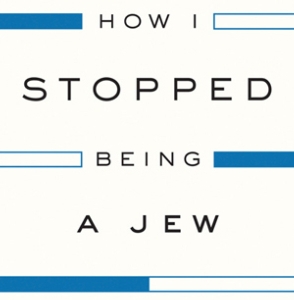
This article is a preview from the Autumn 2014 edition of New Humanist. You can find out more and subscribe here.
The Illuminati advertise on the streets of Johannesburg. Driving to work one morning a couple of months ago on Empire Road, I noticed a small, A5-sized poster pasted on to the barrier wall around one of the stations in the city’s new rapid bus transit network. Under the heading “ILLUMINATI” it offered “fame, riches and power” to whoever called a mobile number printed in large numbers across the bottom of the advertisement. Over the next few weeks, similar posters – some illustrated, others not – appeared on rubbish bins, traffic signs, walls and fences around the city: mainly in the buzzy, occasionally chaotic, central areas of the old central business district (known locally as the CBD) and Braamfontein, and as far north as the polite, neat, predominantly Afrikaans suburb of Linden.
For residents of the city, these advertisements are not remarkable for the fact that a secret organisation seems to be interested in assisting residents in finding fame and fortune, but because this is a new addition to the range of similar small advertisements that plaster Johannesburg. These offer enlargements of various body parts; help with finding lost lovers and procuring abortions; and the services of various prophets. Occasionally, a prophet will advertise his services as both a locator of lost lovers and an abortionist. Or as an expert in penis enlargements and as an improver of luck. Every so often, the city authorities will peel and scrape off as many of these signs as they can, but, after a few weeks, a new flock appears on lampposts, signs and even parts of the Constitutional Court.
City managers’ efforts to remove the posters are connected partly to the image that Joburg – also known as Egoli or Jozi – likes to project of itself as a prosperous, modern metropolis. Last year, the city of Johannesburg adopted the slogan “a world-class African city”, a claim swiftly challenged by the Advertising Standards Authority. This was on the grounds that a city so plagued by regular power cuts, pockmarked with potholes and with such poor service delivery in many areas could not claim to be “world-class”.
In some ways, this grandiosely inaccurate claim is typical of this upstart city, which sprawls above South Africa on the Highveld plateau. It is younger than Cape Town and Durban – two former capitals of British colonies – having been established in 1886, after the discovery of significant deposits of gold. It has been described as (South) Africa’s most “modern” city: in terms of the arts, urban planning (it is the city of the car), architecture and the mining technologies that have enriched a small but powerful section of its population.
Johannesburg is South Africa’s financial capital, and the site where some of the country’s dirtiest politics are played out. The variety of languages spoken on its streets – French, Swahili, Shona from Zimbabwe, Chichewa from Malawi, alongside South Africa’s own eleven national languages – demonstrates the extent to which it remains a magnet for people seeking their fortunes, be they from north of the Limpopo or from South Africa’s rural areas.
For all its wide highways and shiny high-rise offices, Johannesburg is also a place of magic and prophecy, and these migrants play a particular role in such exchanges and rituals. Many of the prophets and healers who advertise their services on the flyers that adorn the city are migrants from elsewhere in Africa providing services to locals and foreigners alike. Indeed, the experiences of migrants living in Johannesburg may go some way towards explaining the appeal of the services offered by the flyers.
The city is a magnet for refugees fleeing conflict and persecution further north, and for people in search of better opportunities than would be offered at home. Many of these migrants occupy an uncertain world in Joburg’s occasionally decaying and dysfunctional CBD, eking out livings as traders, cleaners and security guards, all the while dodging the officials who want to see papers proving their right to remain in South Africa. (Even with the correct and up-to-date forms, migrants are particularly vulnerable to police harassment.)
It is unsurprising, then, that prophets (and secret organisations) offering to improve luck, neutralise enemies and peer into the future would be attractive to people living precarious existences. South Africa – like many other countries in the region – has a long history of prophecy and divination, and these practices are integral to some forms of religion. As Matthew Wilhelm-Solomon, a researcher at the African Centre for Migration and Society at the University of the Witwatersrand, observes in Writing Invisibility: Conversations on the Hidden City (2013), these have often become particularly powerful during periods of social and political transition and economic hardship. Churches and prophets provide means – community, information, ritual – to assist the city’s population to make sense of the world around them, but also to negotiate what is occasionally a violent and deeply frightening place.
However, prophecy is only one service offered by the practitioners who advertise around the city. Herbalists and healers provide purported cures for a staggering range of diseases and conditions – ranging from impotence and arthritis to HIV/AIDS to tuberculosis – as well as abortions. Despite the fact that abortion is legal in South Africa, many young women make use of the services of small, often illegal, clinics because they advertise their services as cheap, painless and quick. Similarly, it is often easier to contact practitioners offering health services than to navigate South Africa’s confusing and overburdened health system. It is also true that many South Africans supplement visits to hospitals and clinics and their use of Western biomedicine with remedies from herbalists and healers. The Traditional Health Practitioners Act recognises alternative medical practices, partly in an attempt to regulate them.
As Wilhelm-Solomon writes, churches, prophecy and these alternative forms of healing fulfil migrants’ “need for a sense of acceptance and belonging, and a public space to speak in a history where so many other avenues – the media, state, society at large – are closed”. Migrants’ sense of powerlessness also offers one explanation for the popularity of penis, breast and hip enlargements. In fact, the most common flyer found around Johannesburg offers expert assistance with penis enlargement. Usually based on medicines imported from China, these treatments purport to make patients more attractive to the opposite sex.
Maxwell Kadenge and Thabisani Ndlovu, researchers based at the University of the Witwatersrand, argue in their 2012 article “Encounters with Panaceas” for the Journal of Contemporary African Studies that men living in an intensely stressful city and occupying, as migrants, relatively powerless positions may seek penis enlargements as a way of asserting their masculinity. For women, larger breasts or hips could help to attract a partner. These enlargements – as well as posters offering to locate lost lovers – speak to anxieties about navigating precarious existences in Johannesburg alone.
The advertisements make visible the fears and concerns of some of the city’s poorest and most marginalised residents: those who occupy a precarious position between legality and illegality. It is no surprise, then, that they should seek succour and help from both official and unofficial sources, and rely on magic and prophecy to navigate life in what Caroline Wanjiku Kihato has described as an “in-between city”. In their American Ethnologist article “Occult Economies and the Violence of Abstraction” (1999) the anthropologists Jean and John L. Comaroff have suggested that the rise of an “occult economy” (“the deployment of magical means for material ends”) occurs in situations “of rapid social transformation, under historical conditions that yield an ambiguous mix of possibility and powerlessness, of desire and despair, of mass joblessness and hunger amidst the accumulation, by some, of great amounts of new wealth”. Magic, prophecy, the help of herbalists and the desire to radically refashion bodies all become means of both eking a living in this topsy-turvy world and, for the marginalised, of finding a way to make a place for themselves under conditions that seem to defy reason and logic.

